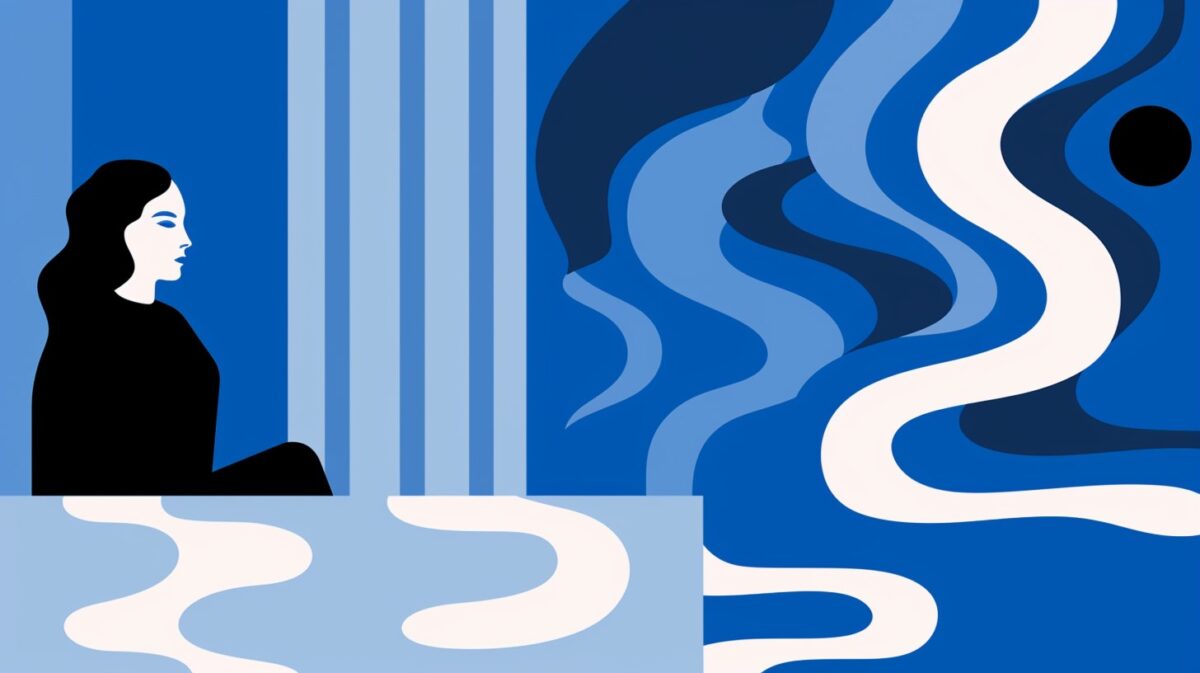Our ‘Sessions‘ series explores sessions at the Clinical Psychologist’s Office
Session 6 at the Clinical Psychologist’s Office
The familiar calm environment of the room is contrasted by Sue’s agitated demeanor. Her eyes are red, suggesting she may have been crying earlier, and her posture is slouched, indicating defeat.
Dr. Greene: Hi, Sue. You seem particularly distressed today. What’s on your mind?
Sue: Hi, Dr. Greene. This week has been awful. Just when I thought I was getting a grip on things, it feels like I’ve unraveled. I’ve been constantly doubting my memory. Did I lock the door? Did I turn off the stove? Did I reply to that email? I can’t trust my memory at all, and it feels like everything we’ve worked on has just… evaporated.
Dr. Greene: I’m sorry to hear that, Sue. It’s not uncommon to experience setbacks, especially when dealing with deeply ingrained cognitive patterns. What you’re describing now is another cognitive theme: confidence in memory. Many people with OCD grapple with this, doubting their own recollections or actions, even when there’s no logical reason to do so.
Sue: But why now? I was doing so well with the journaling and confronting my other fears.
Dr. Greene: It’s possible that as you began to address and challenge some of your core fears, this underlying issue of memory confidence surfaced. Remember, healing isn’t always linear. There can be ups and downs. Our task is to address each challenge as it comes and equip you with the tools to manage them.
Sue: So how do I cope with this one? The constant doubt is exhausting.
Dr. Greene: First, it’s important to recognize the pattern. When you start doubting a memory or action, pause and assess the situation. Ask yourself:
- Have I felt this way before? Recognize if this is a familiar pattern of doubt.
- What’s the evidence? If you’ve checked the stove three times, chances are, it’s off.
- Is the doubt proportional to the situation? For example, forgetting an email might be inconvenient, but it’s not catastrophic.
Next, I’d recommend integrating a mindfulness practice. When performing tasks that you frequently doubt, be present. For instance, when locking the door, say to yourself, “I am locking the door now.” This act of mindfulness helps reinforce the memory.
Sue: That sounds simple, but in the midst of anxiety, everything feels so overwhelming.
Dr. Greene: It’s completely understandable. The key is practice. The more you apply these techniques, the more intuitive they’ll become. And remember, it’s okay to seek reassurance occasionally. If you’re genuinely uncertain about something significant, it’s okay to check or ask. The goal is to find a balance and not let the need for reassurance dominate your life.
Sue: I’ll try, Dr. Greene. It’s just hard feeling like I’ve taken two steps back.
Dr. Greene: Progress is a series of advances and setbacks, Sue. The setbacks don’t erase the progress; they’re just part of the journey. Every challenge you face and work through makes you more resilient. We’ll navigate this together.
The session depicted above is a fictional representation and does not depict real individuals or actual events. It is constructed based on general principles and experiences within the field of clinical psychology but is not representative of any specific real-life scenario or therapeutic relationship. Anyone seeking psychological advice or therapy should consult with a licensed professional who can provide guidance tailored to their unique situation.
The old way | ocd.app | |
Cost | $$$ – Therapist costs | $ – Save money |
Evidence | No published evidence | 13 published studies |
Time burden | Long term | 3-4 minutes of your day |
Results | Takes months | 91% see first results within a week |
Privacy | Privacy concerns | Anonymous and private |
User feedback | Mixed | 4.8 / 5.0 (2,635 reviews) |
